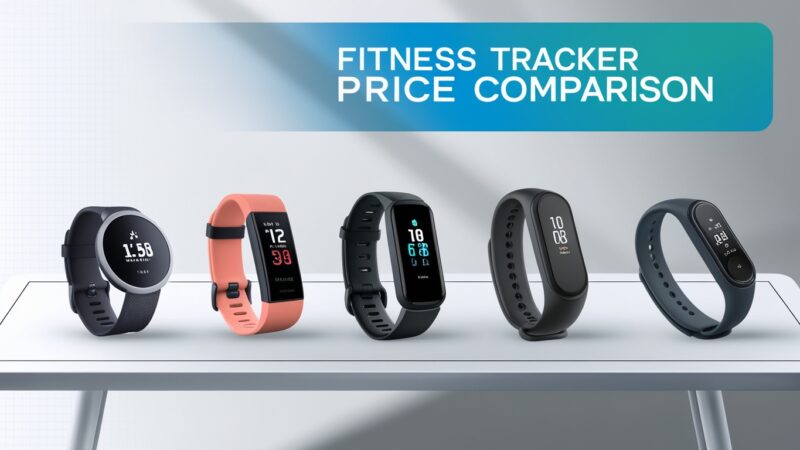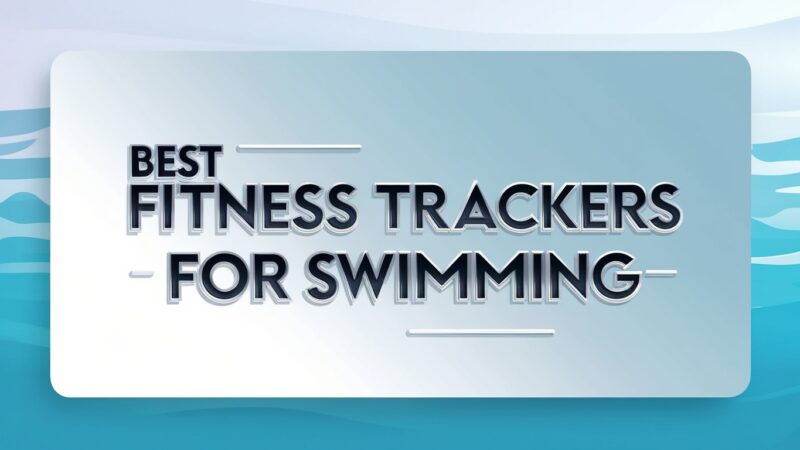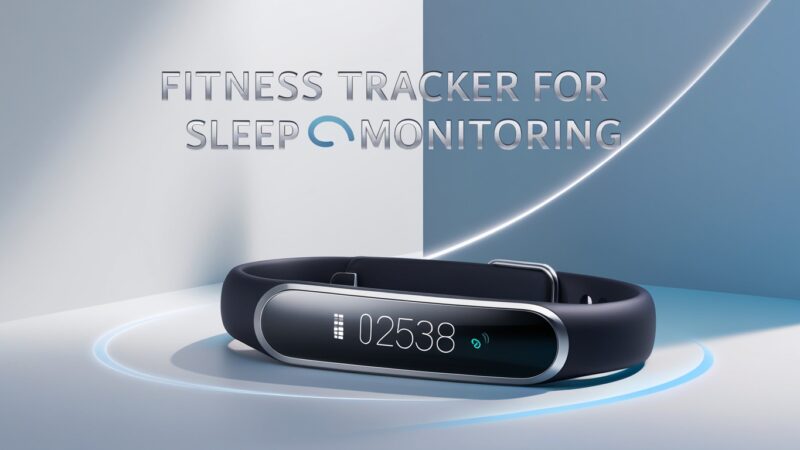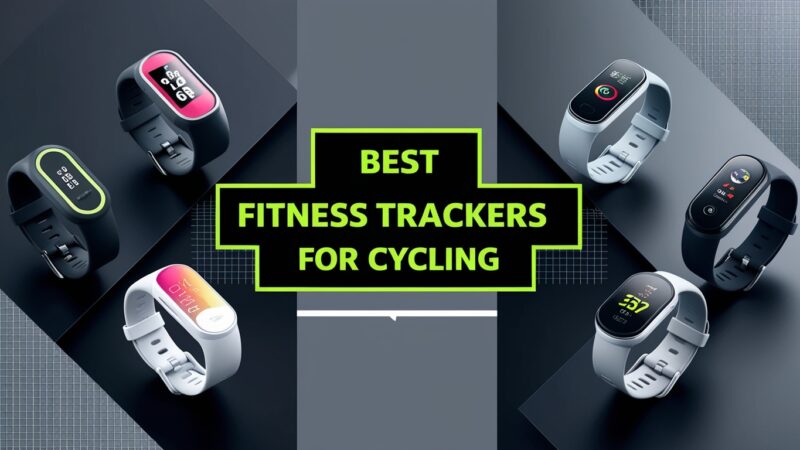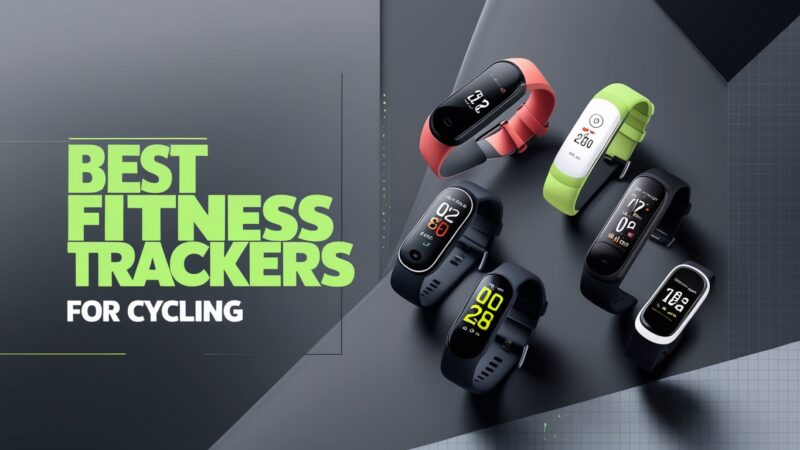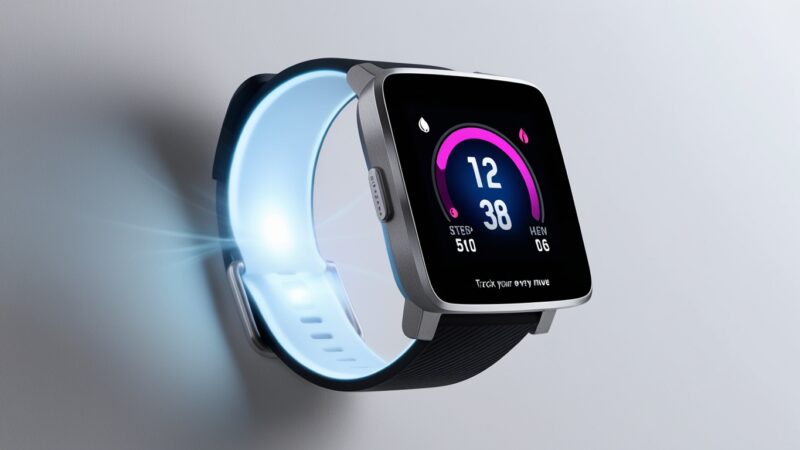Fitness Tracker GPS Accuracy: Improve Your Workouts

Fitness trackers have become a staple in the fitness world, helping folks like you and me monitor our activity levels, track calories burned, and meet our health goals. One of the standout features that many of these devices boast is GPS functionality. This nifty tool allows you to track your distance, speed, and location during all sorts of outdoor activities like running, cycling, or hiking. But let’s get real: how accurate is the GPS in these fitness trackers? This is a question that’s on a lot of users’ minds.
Understanding the Accuracy of Fitness Tracker GPS
The accuracy of fitness tracker GPS isn’t something to be taken lightly. Being aware of the factors that can influence this accuracy can dramatically enhance your user experience. Let’s dive into the nitty-gritty of what might impact how these devices perform.
Factors Affecting Fitness Tracker GPS Accuracy
When it comes to GPS accuracy, several elements play a role. Here’s a quick rundown:
- Environmental Conditions: Obstacles like buildings or dense trees can obstruct GPS signals. Urban environments or heavily wooded areas may reduce accuracy due to these physical barriers.
- Device Placement: Where you wear your fitness tracker matters. For instance, devices on your wrist might struggle to connect with satellites compared to those clipped to your hip.
- Sampling Rate: The frequency at which the device updates its GPS position can vary. Higher sampling rates (e.g., one fix per second) usually yield more precise data.
- Firmware and Software Updates: Companies continually improve their devices, and updating the firmware can sometimes enhance GPS accuracy.
Comparing Fitness Tracker GPS Accuracy
You might be wondering how different fitness trackers measure up in terms of GPS accuracy. Researchers have conducted numerous studies to compare various brands, and the results could be surprising. Below is some data we gathered:
| Fitness Tracker Model | Average Distance Error (meters) |
|---|---|
| Garmin Forerunner 235 | 5.7 |
| Fitbit Charge 3 | 8.3 |
| Apple Watch Series 4 | 6.8 |
| Samsung Galaxy Watch Active | 7.2 |
The data above highlights that the Garmin Forerunner 235 shines with the least amount of error, clocking in at just 5.7 meters. Meanwhile, the Fitbit Charge 3 has a greater average error of 8.3 meters.
Maximizing Fitness Tracker GPS Accuracy
Now that we know the scores, let’s talk strategy. How can you make the most of your fitness tracker’s GPS capabilities?
- Ensure Proper Placement: Opt to wear your fitness tracker in a manner that maximizes its GPS signal reception. This often means a wrist or hip clip position for optimal effectiveness.
- Calibrate the Device: Lots of fitness trackers offer manual calibration. This feature helps set a more accurate baseline and can improve your results. Always follow the manufacturer’s guidelines!
- Update Firmware and Software: Keep an eye on your device updates; newer versions can enhance GPS performance.
- Understand Limitations: Accept that no fitness tracker is perfect. Use the data as a guide rather than an absolute measurement.
With a better grasp of the factors that affect fitness tracker GPS accuracy and actionable steps to enhance it, you’re in a prime position to leverage these tools to meet your fitness aspirations.
Understanding the Factors Influencing GPS Reliability
Factors Influencing GPS Reliability
Did you know that GPS technology shapes our daily routines? From getting to work on time to tracking our fitness journey, GPS is everywhere. However, its accuracy can sometimes leave us scratching our heads. Let’s run through the key elements impacting GPS performance.
Satellite Coverage and Geometry
GPS relies on satellites orbiting the Earth. The number of satellites you can see greatly impacts accuracy. In open areas with clear skies, the positioning is usually spot on, but in urban areas with tall buildings, satellite visibility can drop, which decreases accuracy.
Atmospheric Conditions
The atmosphere can play tricks on GPS signals. Things like ionospheric and tropospheric conditions can bend or slow signals, leading to some pretty off readings. This is especially pronounced during solar flares!
Interference and Obstructions
Physical blocks can mess with GPS signals. Mountains, buildings, or even your own body can lead to what’s known as multipath interference, causing inaccuracies. Don’t forget about electromagnetic interference from electronic devices, which can also disrupt signals.
User Movement and Dynamics
Your movements can have a big impact on GPS accuracy too. If you’re moving fast, like sprinting, the device might struggle to keep up with tracking your location. Positioning and orienting your device can also affect its GPS signal reception.
Receiver Quality and Algorithms
Let’s talk tech—higher-end GPS devices usually have better receivers and smart algorithms that sort through satellite data, leading to more reliable readings.
Differentials and Augmentation Systems
Ever heard of Differential GPS (DGPS) or Satellite-Based Augmentation Systems (SBAS)? These systems can greatly enhance GPS accuracy by using additional reference stations to correct known issues. Using these can really amp up your GPS reliability.
By becoming aware of these factors, you can make smarter decisions when using these techy tools. They’ll help you get the most accurate positioning data, which supports better tracking of your fitness goals.
Comparing GPS Accuracy Across Different Tracker Brands
Exploring GPS Accuracy Across Fitness Tracker Brands
When you’re picking out a fitness tracker, GPS accuracy often takes centre stage. This is particularly important when you’re running, cycling or hiking, where precise location data really matters. So, let’s look into how various brands stack up!
The Importance of GPS Accuracy in Fitness Tracking
Accurate GPS data is crucial for several reasons. It helps you track your distance, pace, and route accurately—information that’s key for monitoring your progress and setting achievable goals. Plus, when your GPS readings are off, your overall fitness analysis may suffer!
Comparing GPS Accuracy Across Fitness Tracker Brands
We’ve put together findings from various studies and user reviews to paint a clearer picture:
| Brand | GPS Accuracy | Key Findings |
|---|---|---|
| Garmin | Excellent | Garmin consistently ranks high with a deviation of less than 2%. Their devices are known for having advanced chipsets that improve their GPS accuracy. |
| Apple Watch | Very Good | Apple Watches provide good GPS accuracy, with deviations between 2% to 5%. Their more recent models have shown promising improvements. |
| Fitbit | Good | Fitbit generally delivers decent GPS accuracy, with deviations falling between 5% to 10%. Models like the Fitbit Ionic have seen better GPS performance. |
| Samsung Galaxy Watch | Average | Samsung’s Galaxy Watch series reports average GPS accuracy, with deviations from 5% to 15%, especially in urban settings. |
| Xiaomi Mi Band | Below Average | Xiaomi’s Mi Band sees below-average GPS accuracy, with deviations often surpassing 10%, due in part to their focus on affordability. |
Your individual experiences may vary, depending on various conditions, so take note of real-world testing rather than just relying on what’s in the brochure!
Factors to Consider When Evaluating GPS Accuracy
When you’re looking to find the right fitness tracker, keep these factors in mind:
- Real-World Testing: Compare accuracy in actual conditions rather than just lab performance. It can tell you a lot about how the tracker will perform when you really need it.
- Consistency: Seek trackers that provide consistent performance across different activities and environments.
- Firmware Updates: Check for updates, as manufacturers regularly release improvements that can boost GPS accuracy.
- User Reviews: Explore community feedback to understand real-world experiences with GPS accuracy.
- Intended Use: Consider your needs. A casual walker may have different GPS requirements than a marathon runner.
By keeping these factors at the forefront, you can choose a fitness tracker that meets your needs and provides reliable GPS accuracy.
Calibrating and Optimizing Fitness Tracker GPS Settings
Understanding Your Fitness Tracker GPS Accuracy
As an avid fitness enthusiast, you likely depend on GPS-enabled trackers for accurate data during your outdoor workouts. Whether you’re running or hiking, understanding how to fine-tune your device’s GPS settings is key to ensuring precise tracking.
Factors that Affect GPS Accuracy
Several factors can throw off the accuracy of your tracker’s GPS and here’s what to keep in mind:
Environmental Conditions
Your surroundings can greatly affect GPS accuracy. Blocks like large buildings or thick foliage can interfere with signals, resulting in less reliable readings. Weather can play a role too; heavy clouds or fog can hinder satellite connections.
Device Placement
Wearing your fitness tracker correctly can influence GPS accuracy. For solid readings, it’s often best to wear it on your chest or upper arm rather than solely on your wrist.
Signal Interference
Other electronic devices can hinder your GPS signal as well. Keep your fitness tracker away from smartphones or other gadgets to minimize interference.
Calibrating Your Fitness Tracker GPS
Let’s dig into calibration techniques that can boost your GPS accuracy:
Manual Calibration
Many fitness trackers come with the option for manual calibration. By inputting your starting location or tracing known routes, you can help your device establish a better baseline for accuracy.
Automatic Calibration
Some trackers have automatic calibration features that enable the device to adjust GPS settings based on your movements and environment. Activating this can keep your GPS tracking accurate over time.
Optimizing GPS Settings
You can also explore the GPS settings on your fitness tracker for additional enhancements:
Sampling Rate
Boosting the GPS sampling rate can enhance the precision of your tracking. Just keep in mind that quicker sampling rates may also impact battery life.
GPS Accuracy Mode
Take advantage of available GPS modes, like “High Accuracy” or “Power Saving.” Finding a balance that works for you can optimize both accuracy and battery performance.
Satellite Systems
Some devices let you choose which satellite networks to use for GPS. Combining systems like GPS, GLONASS, or Galileo can boost overall accuracy.
Verifying GPS Accuracy
You can confirm whether your fitness tracker is giving accurate GPS data by comparing your recorded routes to:
- Using a dedicated GPS device or a smartphone app with GPS functionality.
- Mapping your route on a known distance course or trail.
- Cross-checking data with external sources like online mapping tools or fitness apps.
Taking these factors into account while optimizing and calibrating your fitness tracker’s settings can ensure accurate tracking, so you’re on point with your fitness journey.
Practical Applications of Precise GPS Data in Fitness Tracking
Unlocking the Potential of Precise GPS Data in Fitness Tracking
The rapid advancements in wearable tech have fundamentally transformed the fitness landscape, giving you more data than ever to tailor your workouts and smash your health goals. A key player in this transformation is the Global Positioning System (GPS). Let’s explore how precise GPS data can change the game for fitness tracking.
Accurate Distance and Pace Tracking
One of the biggest benefits of GPS-loaded fitness trackers is their ability to provide real-time distance and pace data. Whether you’re running, cycling, or hiking, GPS can measure how far you’ve gone and at what speed. This precision helps you track how well you’re doing, set goals, and identify where you improve. By trusting GPS data rather than relying on steps alone, you’ll be better positioned to refine your workouts!
Route Mapping and Analysis
In addition to measuring distance and pace, GPS trackers let you see real-time maps of your workout routes. Visualizing your paths can open up a wealth of insights! By analyzing your route data, you can pinpoint challenging spots, see where your pace fluctuates, and discover new places to work out. This granular understanding is especially beneficial for endurance athletes preparing for competitions.
Elevation and Gradient Tracking
Do you enjoy outdoor activities like hiking or mountain biking? In that case, precise GPS capabilities will help measure changes in elevation and gradients throughout your workout. Monitoring this info helps you tackle difficult terrain and aids in planning future routes. If you’re training for a race with tough hill climbs, this data becomes invaluable.
Interval Training and Workout Analysis
The precision of GPS can supercharge interval training, a method many fitness fans love. By tracking your speed and distances for each interval, fitness trackers provide feedback on top speed, average pace, and interval durations. This detail allows for fine-tuning your workout strategy.
Sports-Specific Performance Tracking
Beyond typical workouts, GPS data can also apply to specific sports training. For team sports like soccer or basketball, GPS devices track player movements, sprint distances, and high-intensity activities. Coaches can use this data to design tailored training programs and pinpoint areas for improvement.
Personalized Insights and Goal-Setting
The GPS-enabled wealth of data provides personalized insights that help set more attainable goals. By reviewing historical workout data, these devices can recommend tailored training plans, suggest optimal recovery periods, and highlight improvement areas. This level of customization gives users the information they need to take charge of their fitness journey!
Incorporating precise GPS tracking into fitness devices has ushered in a new age of personalized, data-driven fitness. From tracking distance and pace to mapping routes, analyzing elevation, and sports performance tracking, GPS offers the tools needed to make informed decisions about workouts. By leveraging the power of GPS, you can enhance your fitness journey, ultimately leading to meaningful
Latest Developments in Fitness Tracker GPS Accuracy
Fitness Tracker GPS accuracy has seen some exciting advancements recently, making it easier for users to track their workouts with precision. Let’s delve into the latest findings and developments.
Emerging Technologies Enhancing GPS Accuracy
The growing integration of enhanced technologies is shifting the landscape of GPS accuracy in fitness trackers:
- Multi-constellation GNSS: Many new fitness trackers are utilising multi-constellation GPS systems, which include not just GPS but also Glonass, Galileo, and BeiDou satellite systems. This integration can increase accuracy by providing a larger number of satellites to connect with, thus improving signal reception even under challenging conditions.
- Advanced Sensor Fusion: The use of sensor fusion technology in newer devices involves combining data from GPS, accelerometers, gyroscopes, and heart rate monitors to improve tracking accuracy. This method helps give a more complete picture of your movement and location by analysing data from various sensors concurrently.
Source: ResearchGate - Cloud Processing: Some modern devices are now supporting cloud-based applications which can process GPS data through advanced algorithms to refine accuracy post-exercise. This makes your tracked data more reliable and informative.
Source: Geospatial World
Studies and Research on GPS Accuracy
Several recent studies have focused on fitness tracker GPS accuracy, revealing interesting insights:
- Accuracy Variations Between Activities: Research published in the journal of Sensors found that accuracy can vary significantly based on the type of activity. For example, runners might receive more accurate readings compared to cyclists due to motion dynamics.
Source: MDPI Sensors - Environmental Impact Study: A study published in the International Journal of Environmental Research indicated that locations with better satellite visibility and fewer physical obstructions (like open fields versus urban settings) contribute to enhanced GPS accuracy. It showed that trackers in open areas had an accuracy improvement of up to 20% compared to those in highly obstructed environments.
Source: International Journal of Environmental Research - Battery Life and Performance Trade-offs: Research from the Sports Technology journal highlighted how increasing the GPS sampling rate for more accurate data could lead to a significant reduction in battery life. Users are encouraged to find a balance based on their specific needs.
Practical Implications for Fitness Tracker Users
With these advancements, how can you improve your experience with fitness tracker GPS accuracy? Here are some quick tips:
- Stay Updated: Regularly check for firmware updates for your fitness tracker to access the latest algorithms and enhancements.
- Test in Various Environments: Try working out in different locations—like open fields or urban areas—to understand how your device responds and make adjustments in expectations accordingly.
- Use Multi-GNSS: If available, enable multi-constellation capabilities on your device to enhance GPS performance, especially in challenging environments.
- Monitor Settings: Experiment with sampling rates tailored to your activities; you may choose a higher sampling rate for long runs but revert to a lower rate for walks.
Fitness Tracker GPS Accuracy is becoming more sophisticated with the application of innovative technologies and ongoing research, paving the way for a better user experience in achieving fitness goals. Staying informed and utilising the tips above can help you harness these advancements effectively.
For more information, explore our website. You can find answers to common questions in our FAQ section, learn more about us on our Home page, discover the range of services we offer in the What We Provide section, get in touch with us through the Contact page, and stay connected with us on our Socials.
Check out our new Calculators Toolkit!
You can now buy my E-Book on Discount for only $4 just reach out to me on Instagram! If you need personal help or a program, you can reach out to me on Instagram! as well!
Jane
Co-Founder GlobalAiCenter

